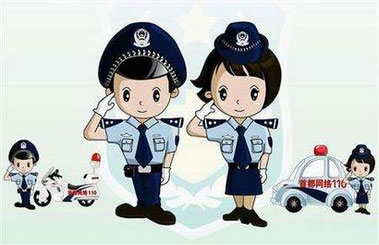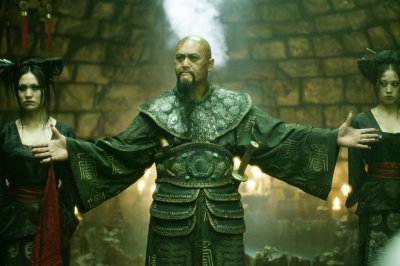
Tennessee governor
Phil Bredesen recently returned to Nashville from a 9-day trip to China with about 100 Nashville business leaders to promote trade between China and Tennessee. On his flight home, Bredesen wrote an
article for
The Tennessean, Nashville's main daily newspaper, to tell Tennesseans about some of his opinions of China.
"First, an insight about America: The Chinese are willing to do big things; we need to rediscover that audacity here at home. I've felt for a long time that we confine ourselves far too much to frittering around the edges of opportunities — in infrastructure, in transportation, in health care. This trip has crystallized this feeling. Hong Kong has 7 million people, a little larger than Tennessee; I flew out of a new Hong Kong airport this morning that cost $8 billion to construct. Can you even imagine an $8 billion public infrastructure project in Tennessee? With even bigger ones on the drawing boards?"I've had the same type of observations during my experiences in China. The Chinese have probably become the greatest entrepreneurs in the world. They're willing to take chances and make major investments in projects they believe are worthwhile even though substantial risks are often involved. Americans, on the other hand, seem to have become complacent and sometimes even lazy, willing to blindly rely on the mantra that the United States is (and always will be) the most economically powerful nation in the world. While the United States certainly is still the world's biggest economy, China is gaining rapidly and its annual growth is about 3 times that of the U.S. China takes education seriously and is making an concerted effort to provide better educational opportunities while the quality of the American education system is stagnating if not declining. While I don't think its productive to view China/U.S. relations as an economic race or a competitition to see who can be best, I do think that the U.S. needs to get back to what made it such a successful country - motivation, serious work ethic, serious commitment to education, pride, innovation, etc.
"Second, China is enormous; 1.3 billion people is a quarter of the world. The refrain repeated over and over by our Tennesseans: "You just have to see it to believe it." There are cities in China you've never heard of that are bigger than any city in the U.S. And with that size, there is an astonishing amount of money in China. Shanghai defies description. A lot of what is going on right now has to be a dot-com-like bubble — but it's the underlying wealth to buy these assets that is the real story, and that wealth is definitely there and growing exponentially. China is having its coming-out party."The enormity of China is one of the first things that hits you when you visit China, especially if you have the opportunity to travel around a bit. China and the United States are about the same size in terms of land mass. However, China has 1.3 billion population compared to The United States' 300 million (
world population statistics) and there are many more big, highly populated cities in China than in the U.S. (
world's most populated cities) The pace of growth in China is staggering with huge construction projects are going on all over in major cities.
"Third, the political system in China is unique and defies labels. It's not the gray communism that I knew in the 1970s in Eastern Europe; it's not Western-style capitalism either. My best one sentence description would be, "A one-party capitalist country with no Bill of Rights."I agree with Bredesen that China's political system is unique and defies labels, but I don't totally go along with his description of China as a "one party system with no Bill of Rights." China is technically a one-party system. The
Communist Party (CPC) is the sole party in China and, as a totalitarian form of government, clearly exercises a great deal of control over the country's affairs. However, this doesn't necessarily mean that the CCP) always acts as one cohesive political party. From what I've been told by some Chinese colleagues, the CCP is somewhat divided into liberal and conservative factions. Also, while China does not have a
Bill of Rights like the United States, it has become increasingly (albeit slowly) more inclined to recognize and protect human rights. China has joined various international human rights conventions although China has its own views on exactly what rights should be protected and to what degree. Although he may not have intended it to do so, Bredesen's description seems to imply that the human rights guaranteed by the U.S. Constitution should be universal which would be a very arrogant assumption. From talking to many Chinese people, especially college students (who tend to generally have more liberal views than older people), I've found that the Chinese have slightly different ideas about what rights are most important and the extent to which government should protect or restrict those rights.
"And fourth, we need to work hard to open more doors to China. I want more trade missions, and I especially want more Chinese students here and more American students to go to China. For the past century, America has been the higher education destination of choice in the world. After 9/11 and the massive visa restrictions that were put in place, Chinese students looked elsewhere. Places like Australia and parts of Europe are now where many of them go. We lost an invaluable franchise, and we need to regain it."I absolutely agree with Phil on this one. Educational exchange programs should be expanded since this is one of the best way for young people from both countries to learn more about the other. The Chinese want to learn about America. When you visit China, you'll find Chinese people who want to talk to you to practice their English. Students I've met while teaching here at
Lingnan University tend to be very inquisitive about the United States and I've heard some very perceptive non-critical comments from them about differences in culture which American students are not likely to be aware of since most know next to nothing about China and its culture. We need to do more to encourage interaction, exchange, learning and cooperation. The United States and China are likely to be the two most dominant nations of the 21st century and the more they can learn from each other and act cooperatively, the better off both (as well as the rest of the world) will be.
 One thing I've noticed in my travels is that every country seems to have its own American Idol type TV show. China of course is no exception which has its incredibly popular Supergirl show which started in 2005 which was reportedly watched by more than 400 million Chinese fans. Apparently, the show has since suffered some problems (see this article).
One thing I've noticed in my travels is that every country seems to have its own American Idol type TV show. China of course is no exception which has its incredibly popular Supergirl show which started in 2005 which was reportedly watched by more than 400 million Chinese fans. Apparently, the show has since suffered some problems (see this article).



 Last summer, I visited several cities in China as part of a summer study abroad program with
Last summer, I visited several cities in China as part of a summer study abroad program with 























 Congratulations on getting rich
Congratulations on getting rich



